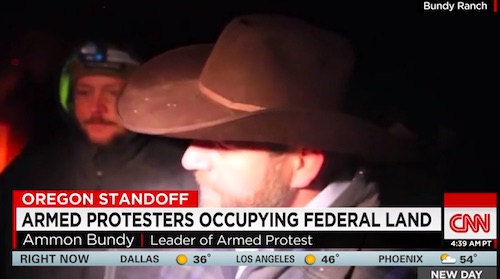
22 Jan A Native View on the Oregon Militia Standoff – A Wound That’s Not Healing
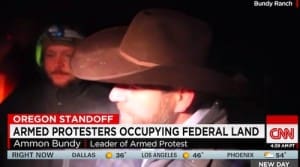
Question & Answer, Karina Guadalupe
Editor’s Note: The standoff in Oregon, where an anti-government militia is occupying a federal wildlife refuge on Paiute land, is like opening an old wound, says Michael Dyer, a program manager at Richmond’s Native American Health Center. Once again, he says, white settlers are using violence to take over tribal land. Dyer was interviewed by The CC Pulse’s Karina Guadalupe.
The CC Pulse: Were you surprised by this standoff over land rights in Oregon between the Bundy Militia and the federal government?
Michael Dyer: Initially, I was kind of alarmed that they were armed. It’s just a mockery of them trying to bring awareness to their cause. And there’s no enforcement up there. They’re just kind of running around and doing whatever they want. It’s a safety issue. I’m concerned for the surrounding community and whatever comes out of it. If it doesn’t end peacefully, then it’s going to be a really bad situation.
RP: Do you think that the police response would be different if the occupiers were people of color?
MD: Yes, absolutely! There’ve been people killed trying to do the same thing. So it’s not whether I think that it would be different. I know it would be different. It has actually happened. Especially with it being an armed occupation. The Wounded Knee occupations ended up with the FBI executing some of the occupiers, just straight up, and just leaving and nothing coming of it. No investigations or anything like that. The problem is, I think, the way the government sees the Native Americans, and Native Americans that have strong activist voices like John Trudell. He was monitored by the FBI but he was always a peaceful protestor. Violence was used against him that was unwarranted.
You have the Leonard Peltier situation. He’s been in prison without even having any evidence that he murdered anybody. They say that he killed an FBI agent but there’s no proof that he did. He has an alibi. But they wanted to crucify somebody for the FBI agent being murdered so they’re doing it with him.
These are the things that come up when I think about this occupation. How would, specifically, a Native American occupation be treated? It would be shut down with violence without a doubt in my mind. I know for a fact that Native Americans occupations have historically ended in violence from the American government, going in and killing people. So, yeah, this one, they are just treating them like they get free rein on the town. They get to go off the site and go grocery shopping and the community sees them and they are intimidated by those people. It’s just ridiculous.
RP: What kind of response have you seen from the Native community?
MD: I’ve seen, only in recent days, the Paiute Nation getting their voices heard. That’s whose land it is. It’s a partnership with the federal government. It’s a wildlife refuge but it’s also on Paiute land. So, luckily, that particular band of the Paiute are federally recognized. If they weren’t federally recognized then I bet it would be already ranch land, you know what I mean?
The Paiutes are organizing and they are getting their voices heard. It wasn’t until the militia mentioned them – and that is what I thought was kind of interesting. They didn’t have a voice until they were mentioned in co-management of the land when it became ranch land.
So the Paiute finally got their voices heard. Now they are getting asked questions and the board of directors and council are stepping up and pointing out that it is federally protected land for the Paiutes. It’s not up for negotiation. There’s no way that land can become ranch land. It’s already protected under treaties.
That tribe has gone through all kinds of stuff from white settlers anyway. So it’s kind of like a wound that’s not healing. So it’s getting poked at again now and it’s like, ‘Hey, I thought we were moving on. It’s supposed to be historical trauma. It’s not supposed to be trauma that happens right now.’ That’s the way I feel about it. It’s happening to the Paiutes right now.
RP: For Native people, could anything positive come out of the militia’s occupation?
MD: If the militia leaves. If they realize that they picked land that they shouldn’t have picked and they picked a partnership with a Paiute nation that doesn’t have to partner with anybody. They are a sovereign nation. They can decide what to do with it, but you know, they run it in conjunction with the wildlife refuge now. So the wildlife refuge is open to the Paiutes for various ceremonies. The nation puts together groups that take elders out there for ceremonies that have been happening for as long as anyone can remember. So, I would say, if they leave and apologize, that would be a really positive outcome for Native people, the Paiute tribe in particular.
It is the Paiute tribe that is being affected. We are not just all Native Americans. We are all from different tribes with different histories, with different cultures, different languages, different agreements with the government. To say it’s a ‘Native American issue’ doesn’t do justice to what is going on with the Paiute tribe.
We are all concerned about them, we all pray for them, we all hope that the outcome is a good thing. But it is the Paiute tribe that is going through it and they are the ones that need the support.


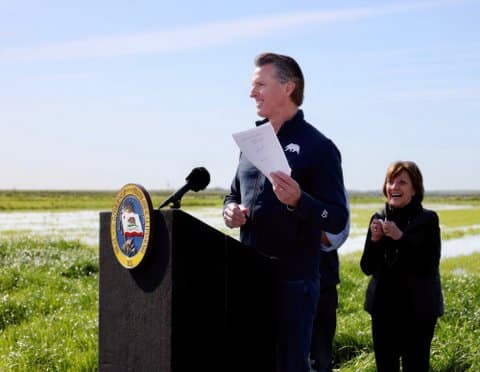
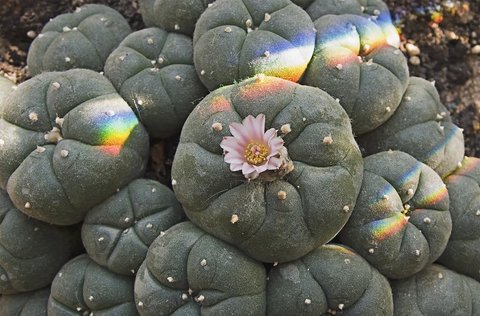
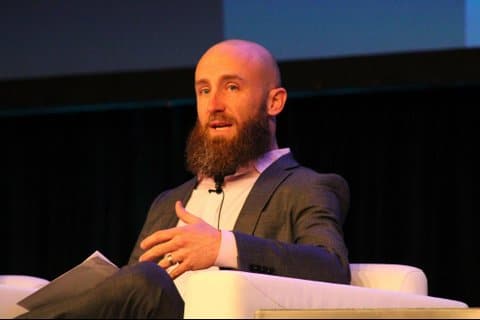
1 Comment